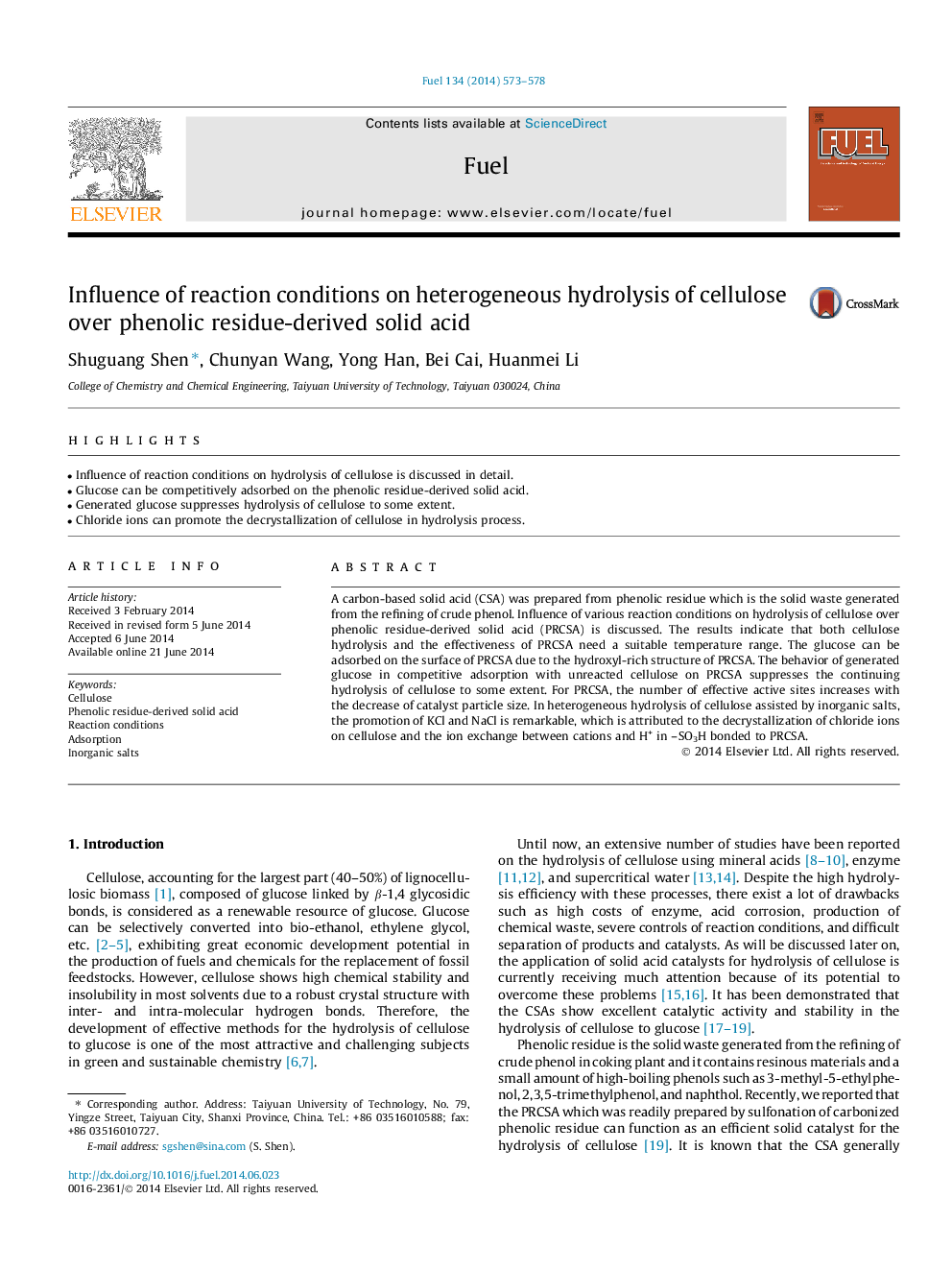| Article ID | Journal | Published Year | Pages | File Type |
|---|---|---|---|---|
| 6637308 | Fuel | 2014 | 6 Pages |
Abstract
A carbon-based solid acid (CSA) was prepared from phenolic residue which is the solid waste generated from the refining of crude phenol. Influence of various reaction conditions on hydrolysis of cellulose over phenolic residue-derived solid acid (PRCSA) is discussed. The results indicate that both cellulose hydrolysis and the effectiveness of PRCSA need a suitable temperature range. The glucose can be adsorbed on the surface of PRCSA due to the hydroxyl-rich structure of PRCSA. The behavior of generated glucose in competitive adsorption with unreacted cellulose on PRCSA suppresses the continuing hydrolysis of cellulose to some extent. For PRCSA, the number of effective active sites increases with the decrease of catalyst particle size. In heterogeneous hydrolysis of cellulose assisted by inorganic salts, the promotion of KCl and NaCl is remarkable, which is attributed to the decrystallization of chloride ions on cellulose and the ion exchange between cations and H+ in -SO3H bonded to PRCSA.
Related Topics
Physical Sciences and Engineering
Chemical Engineering
Chemical Engineering (General)
Authors
Shuguang Shen, Chunyan Wang, Yong Han, Bei Cai, Huanmei Li,
